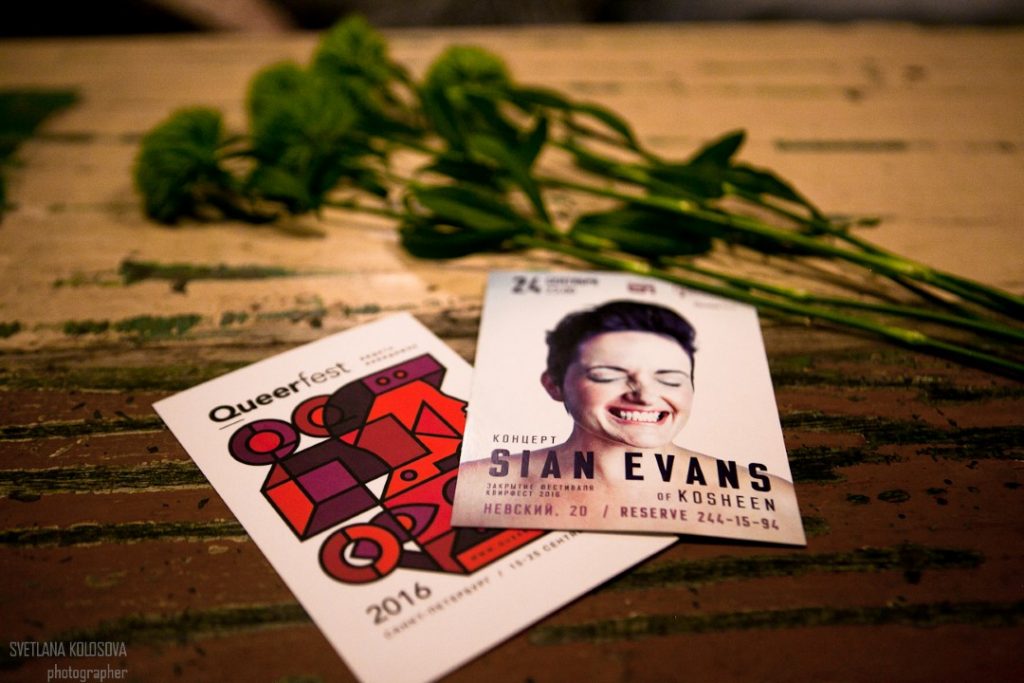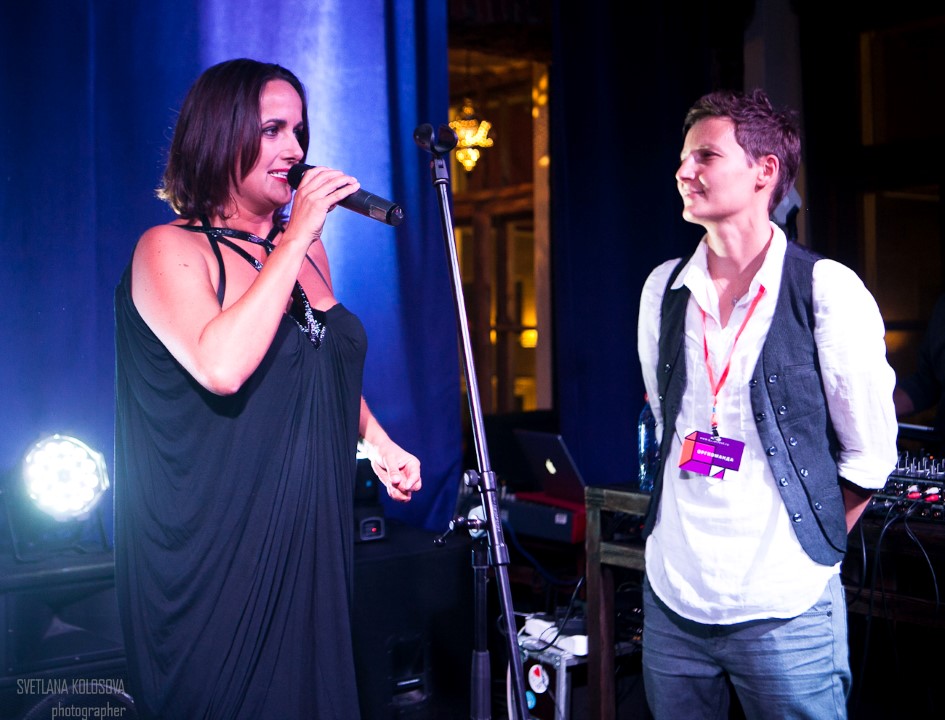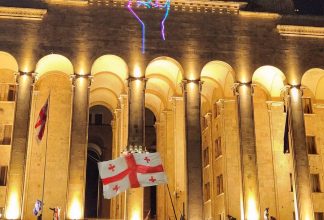Queerfest 2016 – A Change for the Better

In its eight year history as one of Russia’s largest LGBTI festivals, QueerFest has been marred by violence, hate speech, harassment of participants and forced venue cancellations by the authorities. Through dogged perseverance from the organisers and their supporters QueerFest has managed not only to survive but also thrive. In 2016 all the hard work seemed to pay off with not a single violent incident reported.
As Ruslan Savolainen, one of the organisers, describes it ”I joined the festival in 2014, and at that stage all hell seemed to break loose – major disruptions, attacks and barricades everywhere. Now only two years later in 2016, we can announce the festival freely, and large organisations like “The Gallery of Tastes” who are the owners of a nationwide chain of restaurants supports our festival in public under the slogan “We Pose Ourselves as a Friendly Campaign”.
Civil Rights Defenders has been a proud supporter of the event since its very beginning and has witnessed the development of the festival and the sheer determination of the organisers who against all odds have now put QueerFest firmly on the cultural calendar of St. Petersburg.
“This festival is about bringing culture, art and understanding to people in St. Petersburg. I have annually taken part and witnessed how the organisers through sheer willpower have overcome major obstacles to achieve what we have today. Human rights for LGBTI people are constantly under threat in Russia and QueerFest is not only evolving each year but provides a vital life line to the LGBTI community,” said Cecilia Rosing, Programme Officer for Eurasia, Civil Rights Defenders.
This year’s QueerFest broke many boundaries and earned support from some of the most unlikely sources. One of Russia’s largest radio stations positively announced the festival over the country’s airwaves while a political party campaigning in the run up to the recent parliamentary elections spoke out in favour of LGBTI people’s rights. However the overwhelming majority of political parties in Russia use homophobic rhetoric and the Russian Duma has passed archaic laws that have blatantly discriminated against LGBTI people and the organisations that support them.

Over 1500 people visited the festival where the goal was to target a wider audience and be more inclusive. One of QueerFest 2016 main aims was to give a voice to some of the most marginalised and discriminated groups in Russian society, who are often silenced: LGBTI people living with HIV, LGBTI with disabilities and transgendered people with non-binary identities.
While many have hypothesized that the reason for the lack of violence at the festival might have been due to the parallel Russian parliamentary elections with the eyes of the world firmly focused on Russia, the simple fact was that there were no bomb threats, no attacks by right wing groups and no venue closures.
According to the organisers: ”Visitors did not have to worry about running into aggressive young men, being harassed or checked out by the police and the programme flourished”.
Civil Rights Defenders Programme Officer for Eurasia, Cecilia Rosing, had the opportunity to catch up with Polina Andrianova, long time LGBT activist and one of the organisers of QueerFest, in St. Petersburg to talk to her about the festival.
Can you share your reflections about Queerfest 2016? What were the highlights of the festival and what impressed you most?
This festival marked the first trouble-free, attack free festival in the eight years that we have been organising this event. And no matter what the ups and downs are, the challenges and the fatigue, we’ve been coming back year after year. And slowly but surely we have become part of the cityscape… But this realisation really came to me at the closing concert by Sian Evans. We were dancing to her performance, and I looked out of the open window, and saw Nevsky Prospect (the city’s main avenue). And it hit me: seven, five years ago we could have only dreamed to be at the heart of St. Petersburg, at a major well-known venue, with our festival, dancing and not worried about anything. It was truly an amazing feeling.
It was widely reported that there was little or no reports of violence this year. What do you attribute this to? Do you think the Duma elections had anything to do with this as the eyes of the international world were on Moscow?
Setting the dates for the festival we, of course, thought long and hard about the upcoming elections and how they would affect us. Choosing to have the opening of the festival just 3 days before the elections was a risky move. Many advised us that the authorities would just quietly remove us from the face of the city (for example, by closing down the venues as happened so often before). To us, there was a 50/50 chance of us being harassed, or left completely alone. We decided to risk it, and the risk paid off. In retrospect, we think that by the eighth year of our appearance in St. Petersburg, the authorities were realising that it was easier, quieter, and overall less troublesome for them to leave us alone rather than to try and close us down. Because, in the latter case, we would make as much noise as possible to make any harassment known and visible. We are not going away.
Background
Every year since the fall of 2009, the “QueerFest” International festival takes place in St. Petersburg. The festival is a human rights event, which the purposes of creating places where dialogue can take place between various parts of society in order to develop tolerance to invisible and stigmatised groups. To fight against homophobia, biphobia, transphobia and xenophobia in general, the festival chooses a language that is understandable to everyone – the language of culture, art and beauty.

